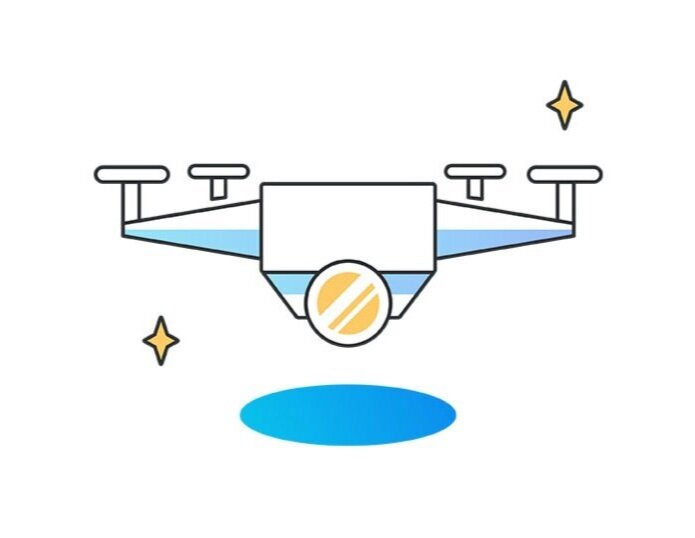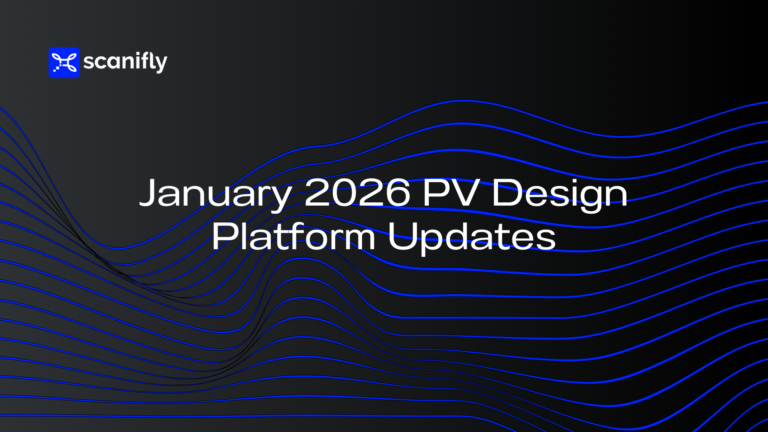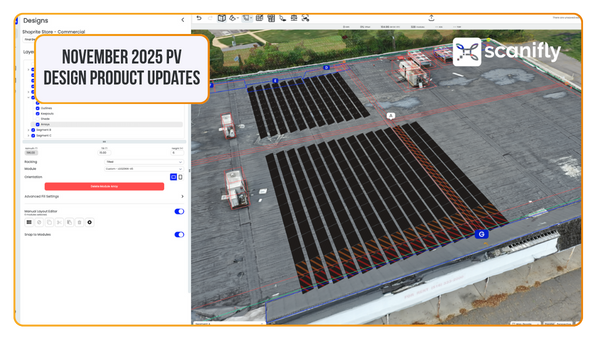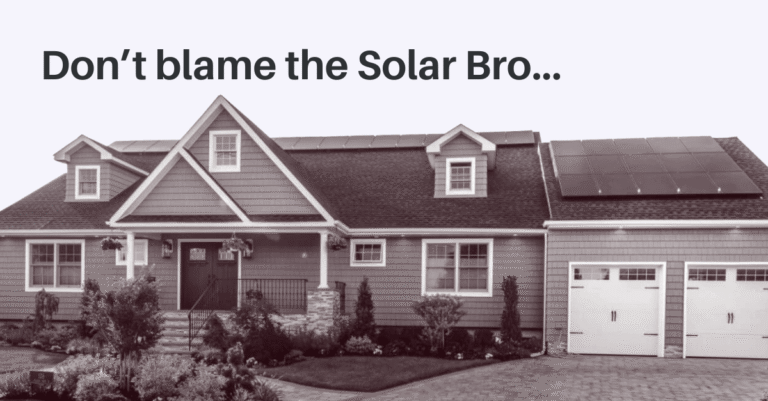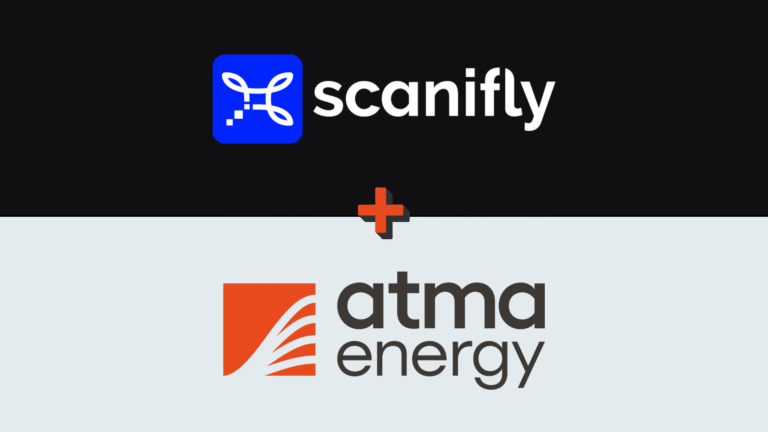Many solar contractors want the ROI of drones, but don’t want an in-house drone pilot. Whether wanting to move quickly without hiring full-timers, logistical concerns, insurance reasons, or testing out a new market, hiring a subcontracted drone pilot can be a fantastic way to try things out before making a commitment. With over 340,000 registered commercial drone pilots in the USA alone, it’s never been easier to find a subcontractor.
This article details the three steps any solar contractor can follow to hire a drone pilot for your solar business.
1. Find a drone pilot for your project
First ask, what do you need the pilot for? Determining who and where to hire first starts with how much you plan to use drones in your business. Once you know that, talent pools become easier to identify. We see two pathways:
A) One-off assistance on an inconsistent or rare basis:
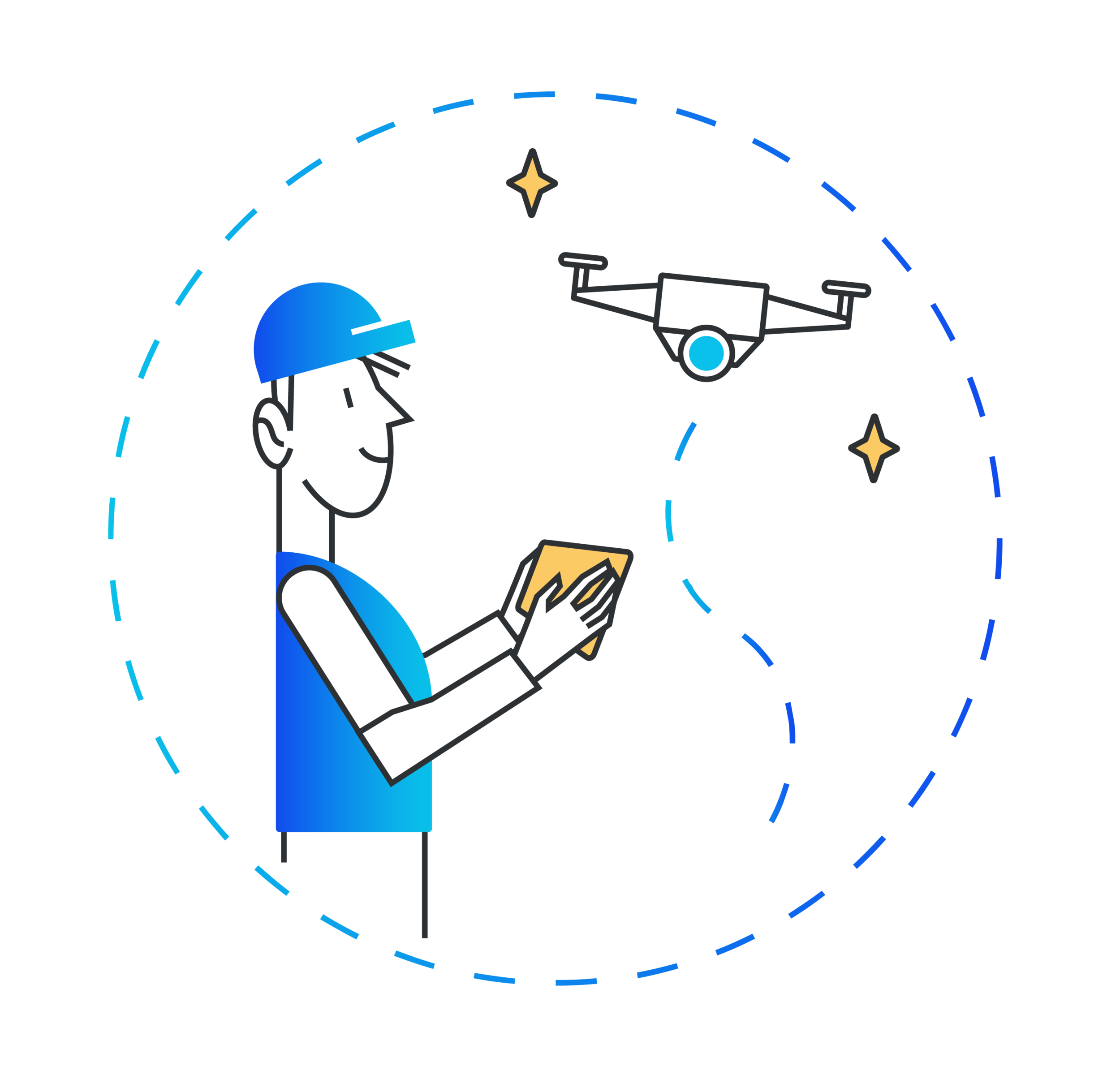
Large networks like FlyGuys or Dronebase have thousands of drone pilots on demand around the US. Pilots from these networks can provide a variety of services including marketing imagery, surveying, and almost any other commercial drone use case.
Weather depending, you can typically go from searching on the network to finishing a project within 3-5 business days.
B) Ongoing relationship, have frequent projects, or need a pilot on call:
Networks like Droners, Upsonder, and HireUAV have lots of commercially certified drone pilots that are available for ongoing work. These are great for large volume contractors, or contractors who want work product consistency. You could also look to traditional freelancer platforms like Fiverr or Upwork, but it might be harder to control for availability and quality.
You can also look in your own network if you have more ongoing work available. You may not personally know any drone pilots, but if you post on your social media accounts and newsletter (if active), or post a job posting on your careers page, you might get candidates who are passionate about drones and happy to work with you.
![]()
2. Interview the pilot
Once you have a slate of candidates, then determine who is going to be right for your company.
After an initial screen for basic credentials (like a Part 107 license, which is a legal requirement in the United States), then you should ask questions in five different categories:
-
General background on drone experience
-
Airspace and flight planning skills
-
3D mapping skills
-
Drone positioning skills
-
Geography where they work and insurance coverage
We’ve included a full list of questions at the bottom of this article that you can draw from.
3. Negotiate a price
While every drone pilot has their own experience and circumstances that can affect rates, here are some general guidelines for pricing as of summer 2021.
Prices per project
One-off projects in general: $200 to $250 per project through marketplaces like FlyGuys or Dronebase. This option costs the most because of the level of coordination required for a one-off project. For solar site surveying work, this only includes the flight.
Closeby one-off projects: $150 to $200 per project when hiring freelance pilots on sites, assuming the projects have less than roughly two hours drive time.
Consistent work (1-5 projects per day): $100 to $150 per project. Many drone pilots work with economies of scale, so you can save money if you have more daily projects for them. If you can commit to a certain daily or weekly volume, that will often yield preferential pricing.
Ongoing or significant work (6+ sites in a day or a minimum 1 day per week contract): Often less than $100 per project.
Considerations to be aware of
Project size: The above prices are ballpark estimates for exterior residential surveys. Commercial or large scale project surveys are typically 25% to 50%+ more expensive.
Internal work: It’s rare for contracted drone pilots to do internal survey work. If you want that as well, expect to pay between $35 to $75+ more per project. Also note that even if you ask for an internal survey, most drone pilots will simply take pictures. They won’t remove the deadfront unless you hire someone with prior electrical experience and pay them for that additional task. If you know your projects need both internal and external work, it’s best to find drone pilots with fire fighting or home inspection experience.
Surveying vs. marketing: Marketing photo projects could be up to 25% less expensive, since the drone work is far simpler.
Thermal work: Due to the costs of equipment, thermal work could be significantly more expensive than these rates.
Hiring a drone pilot is an investment, not a cost
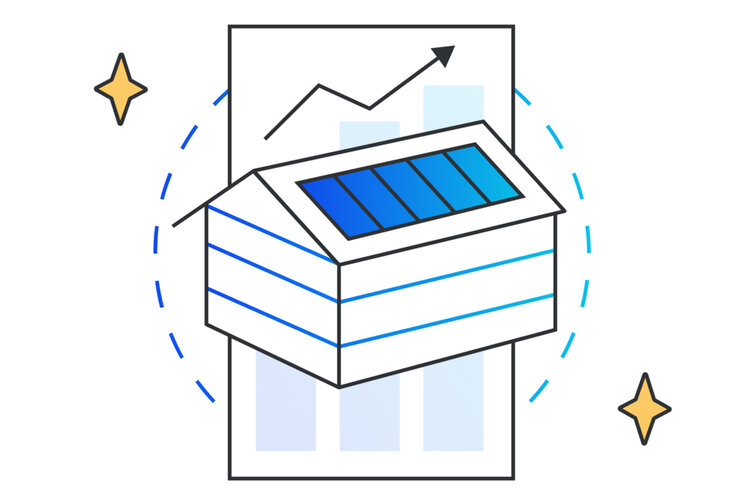
While drone pilots cost money to hire, there is a financial ROI because you can complete 5x more surveys per day using drones, meaning you can capture more customer demand. There’s also the cool factor of drones, which solar contractors say helps them sell more and appear more professional.
If you’re skeptical about what drones can do for your solar business, hiring pilots on a per-project basis is a great way to test the waters. From there, it only costs a couple hundred dollars to have one of your surveyors get their Part 107 license, which can take about a week. A month of practice later, and you’ve got an in-house drone surveyor to help you take on the next phase of company growth.
Interview questions for potential drone pilots
1. General background on drone experience
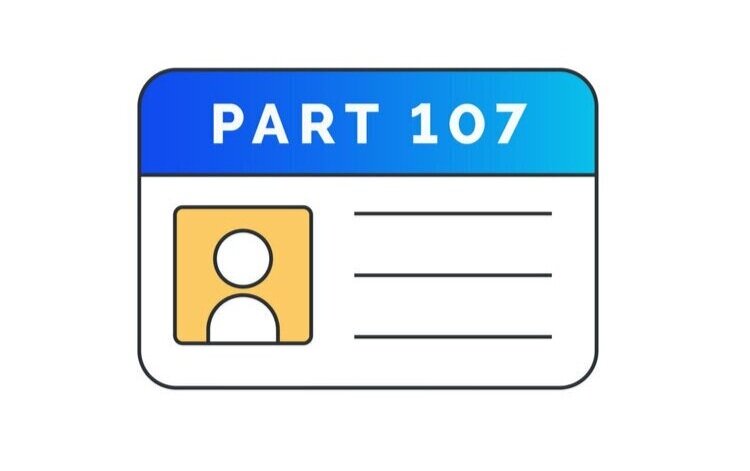
-
Did you obtain your remote pilot certificate?
-
If so, when?
-
What was your score?
-
-
How long have you been flying a drone for?
-
Years?
-
Flight hours?
-
Have you had any accidents?
-
-
What’s your background?
-
Is this your full time job?
-
-
What type of drone or drones do you fly?
-
Mostly DJI?
-
Any fixed-wing?
-
What app or apps do you use to control the drone?
-
Do you prefer autonomous flight or manual?
-
If prefers autonomous flight: What is the procedure for aborting a mission when in progress?
-
-
-
Do you keep a flight log and maintenance schedule?
-
What attire do you typically wear when flying?
-
Reason for asking: Some drone pilots have been seen in shorts and sandals on site, which isn’t professional.
-
2. Airspace and flight planning skills
-
What service and/or tools do you use to evaluate airspace restrictions and classes?
-
Aeronautical chart (SkyVector)?
-
Airmap?
-
-
What is your process/workflow when planning a flight?
-
Check for TFRs?
-
-
What do you do if a site is within restricted or limited airspace?
3. 3D mapping skills
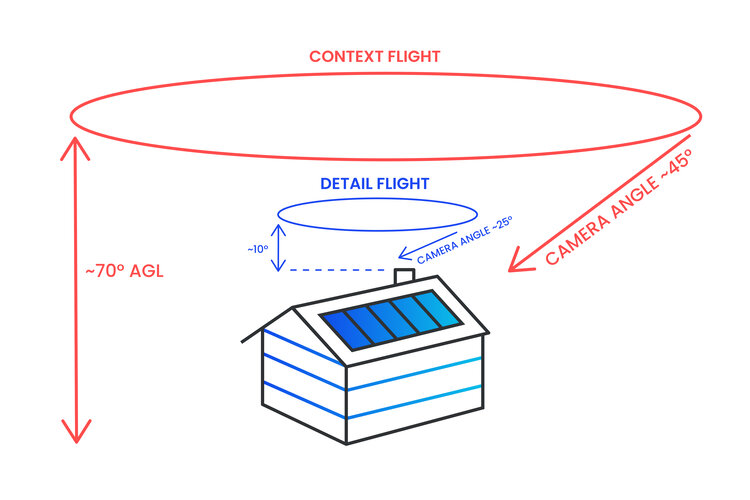
-
Are you familiar with photogrammetry?
-
If yes, what flight path or paths do you use to capture the data?
-
If they mention rasterized: What is the average image overlap percentage you use?
-
If they mention point of interest (POI): Have you used DJI’s intelligent flight modes?
-
-
What photogrammetry engines have you used to create 3D models?
-
What were the 3D models used for? (E.g.: Solar, construction, real estate, etc.)
-
-
-
Are you familiar with LiDAR?
-
If yes, who made the 3D scanner?
-
How many channels did the LiDAR sensor have?
-
Was there a camera coupled to the scanner
-
What did you or the customer do with the point cloud data? (E.g.: Import into AutoCAD, CloudCompare, GIS software, etc.)
-
4. Drone positioning skills
-
Are you familiar with RTK GNSS?
-
If yes, describe the project/mission?
-
-
Have you used on site base stations?
-
What corrections service did you use?
5. Geography where they work and insurance coverage
-
What geographic area do you cover?
-
Do you have a vehicle and driver’s license to get yourself to projects in this area?
-
Will you go to other areas nearby? If so, how does that affect your rates?
-
-
Do you have insurance coverage?
-
If so, what is covered under your policy?
-

